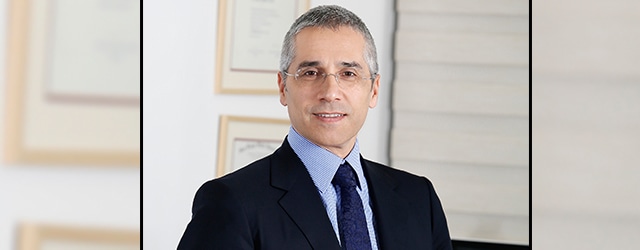
BALANCED GROWTH
Global Finance sat down with Murat Doan Erden, Turkcell Group’s chief financial officer, to discuss the economic and business outlook for Turkey and the challenges confronting Turkish corporates.
Global Finance: What are the key milestones facing Turkey?
Murat Doan Erden: The next decade is crucial for our country, and we need a clear agenda for it. The government and the private sector will write our new story, and 2023, which coincides with 100 years of our republic, is an important psychological achievement. In the meantime we have to understand what could be the contribution of the private sector to growth and how we can explain it to foreign investors. Personally, I am optimistic because of the experience of the current political leadership, the lessons learned from the recent past and the fact that the priorities of the government are the same as those of the private sector.
On the economic front, Turkey’s growth has for the most part stabilized and is reasonable among emerging markets, if we exclude countries like China. In Turkey we need a balance between growth and employment, but growth has to come from investments in products and services.
Turkey is different from other emerging markets. We have to pay for energy since we do not produce any, and this has been our fragility and weak point at times. However, we might see a different scenario this year with the decrease in energy prices. Low energy prices are beneficial for Turkey’s growth and the current-account deficit—we have already started seeing these positive influences in current-account-deficit expectations. This might well be a year where Turkey differentiates itself as a winner among emerging markets.
GF: In a likely scenario of higher interest rates in the US and quantitative easing by the ECB, what is the impact on Turkey?
Erden: The cost of funding will rise, but we will maintain access to liquidity. It will be more selective, but it will not stop. And this, among other things, is the result of a strong banking sector, which is actually still improving. In general, the increase in interest rates in the US will affect all emerging markets but will be eventually digested. What worries me is not the risk of decreased liquidity for emerging markets but rather that increased energy production in the US will change global money flows—even if eventually it will drive the price of energy lower.
GF: How relevant are the opinions of the rating agencies?
Erden: I would make a distinction between short- and long-term effect. In the short term some foreign funds might have to liquidate investments in Turkish shares or bonds, but 90% of the FDI outstanding in Turkey depends on long-term expectations, and those investors, quite frankly, know and understand the country better than the rating agencies. We have also seen that Moody’s refrained from commenting on Turkey’s outlook. The year 2015 will be interesting, with positive and negative influences. The international investor community could be adopting a wait-and-see approach.
GF: What are the main attractions of Turkey?
Erden: There is an opportunity for Turkey to become the Switzerland of the Middle East. And this country is already a hub for many other countries, because of a key geographical position in both directions. It used to be West to East, and now it’s more North to South. Turkish Airlines is a good example, with its international expansion.
GF: What is specific to the experience of your company?
Erden: Turkcell is listed on the NYSE in New York, and 80% of its shareholders are foreign investors. Together with the government we have invested in infrastructure. On the corporate side, 60% of the top 500 companies are our clients, and the infrastructure generates revenue for us. Both on mobile and on fixed networks, growth will come from data. Smartphone penetration on our network is close to 40% of the total, and there is still room for growth.
We understand that 2015 might be a volatile year in all emerging markets. With the positive influence of lower energy prices on growth in Turkey and our strong liquidity at Turkcell, we expect to maintain our growth momentum in 2015.
On the technology front, we are eager to tackle exciting new developments as we head towards significant tech upgrades in 2015. The year will bring opportunities for big leaps in technology as Turkey, our home market, gets ready to introduce 4G, and Ukraine, our biggest international market where we operate through our subsidiary Astelit, will hold a 3G tender.



